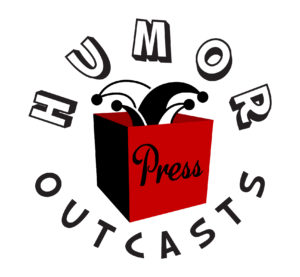 One of the most important relationships in the book writing process is the relationship between an author and editor. So often, a writer will send me a manuscript he/she says was edited by (pick one) a mother, husband, sister, spouse who reads all the time or a second-grade teacher/friend.
One of the most important relationships in the book writing process is the relationship between an author and editor. So often, a writer will send me a manuscript he/she says was edited by (pick one) a mother, husband, sister, spouse who reads all the time or a second-grade teacher/friend.
It’s nice to have a test-reading audience, but this audience should not be confused with editing. Editing is complex. There are two types of editors: The Developmental Editor and The Copy Editor. While many professional editors can do both jobs, some like to stick to one specialty.
A developmental editor—sometimes known as a content editor—guides an author on everything from topic to outline to story structure to dialogue to character development. Authors hire developmental editors to add cohesion and to make their story and characters more believable and to make their message clearer. The writing process is tough, but developmental editors make the product better.
As a novelist and professor of creative writing, Josh Isard asserted, “Readers need to trust the author—they want to trust the author—but without quality editing, authors will not earn that trust. Errors and inconsistencies, from copy editing to characterization to plot holes, will erode a reader’s desire to complete the book, let alone recommend it or buy another work from that author. It’s not just the story that’s at stake in editing, but an author’s long-term career as well.”
Pretty much gone are the days when traditional publishers assigned several developmental editors to one book project. Now, it’s up to the writer to find that developmental editor. Yes, it costs money, but the investment in your book or novel is well worth the cost. Sometimes authors and editors clash on a book’s vision, and it is ultimately up to the author to decide which edits are kept and which are thrown away. But it is important for authors to hear the reasons why an editor wants to make changes. Too often, an author is so close to the material they can’t see why the improvements are needed in the work, and it’s an editor’s job to point out those reasons.
Author and editor Roz Warren sees the role of an editor as a friend, ally and sometimes teacher.
“Every writer can use a good editor,” she explained. “What a good editor will do is take what you’ve written and help you make it better. When I begin work with a new writer, I always tell them, ‘I’m working for you—you’re not working for me. I’m going to suggest changes—usually lots of them—that I think will improve your work, but they’re only suggestions. You’re always free to say no.’”
As the writer-editor relationship grows so does the trust between the two.
“When I come up with a line or a change that will clearly upgrade the work, most writers are thrilled, because they recognize that I’ve just done something incredibly useful,” Warren noted.
When the developmental editor is finished, it is to time to bring in a copy editor to look for those typos and grammatical errors that we all miss. In the past, publishers would run a book through three or four copy editors. Today, there is no budget for multiple editors and independent authors only have only enough money for one editor. So, typos happen. It’s just the way it is. Mistakes get missed, but if the story is good, those mistakes are forgiven. Most devout readers have learned to look past the imperfections that can exist.
So, what can we learn from the editing process? It is essential, and it is best left to the experts—not to your friend, spouse or old grade school teacher. You need an expert trained to be an editor. Editors are not your enemy and they are not there to hog your glory or manipulate your story. They are there to make you the best writer you can be.
You can read more about Josh Isard and Roz Warren at HOPress-ShorehouseBooks.com or contact me (Donna@HOPress-ShorehouseBooks.com) if you are looking for either a developmental or copy editor. We use several experienced professionals, and we can try and match you with one who will fit your needs.
